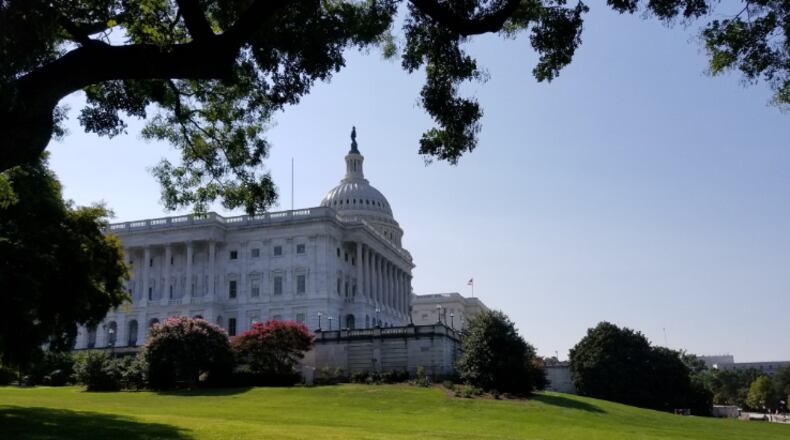After an extended summer break that was filled with major news events which could well drive the details of future legislative work in Congress, lawmakers return to Capitol Hill this week facing a host of heated political issues, any combination of which could become a partisan flash point for Democrats in Congress and President Donald Trump.
"We have a responsibility to make our schools, shopping centers, houses of worship and other public places safer," top Democrats wrote to the President in a letter on Monday, urging him to make it clear what he would support in terms of legislation to deal with gun violence.
Hanging over all of this is the specter of more investigations by Democrats, and the 2020 campaign - plus the calendar - as the House and Senate will work the next three weeks, and then take a two week break into October.
Here are a few items to watch in the days ahead.
1. Democrats return with immediate push on gun legislation. Normally Mondays can be quiet on Capitol Hill, especially as lawmakers trickle back into town following an almost six week summer break. But Democrats are immediately launching a political broadside at the GOP and President Trump by demanding action on gun violence legislation, with news conferences involving Democratic leaders and Mayors, clearly trying to raise the pressure on Republicans - especially in the Senate - to act on gun legislation. It still seems unlikely that there will be votes and compromise on guns, but the Democrats are coming out of the gate fast this week.
2. Democrats want answers from Pentagon on Trump hotels. Already incensed over what Democrats and ethics experts say are clear examples of the President's companies enriching themselves through spending by the federal government, a story broken over the weekend by Politico has further emboldened Democrats to call for answers. In this case, military flight crews have been making stops in Scotland, and staying at President Trump's Turnberry golf resort, which has been in financial trouble. The Air Force is going to get squeezed by Congress for information on this. It's one to watch in the coming weeks.
3. Action needed to avoid funding lapse. While the Congress was able to reach a two year budget and debt deal with President Trump, lawmakers still need to approve the details of the funding bills for Uncle Sam. As usual, Congress will not make the September 30 deadline for that, so a temporary funding plan is needed, what's often referred to as the CR - Continuing Resolution. The House is going to vote on that next week. It's not clear how long that temporary plan will last, whether to Thanksgiving, or into December. But it's an important part of the legislative tableau which will confront lawmakers and the White House this fall.
4. What about the Senate? The Senate is going to keep doing what it's been doing for months, and that is continue to approve nominations from President Trump. If you look at this year, very little time has been taken on actual legislation, as the Senate has morphed into a different type of legislative body from the one I first saw back in 1980. Senate Majority Leader Mitch McConnell has said he will not bring any gun-related legislation to the Senate floor unless it already has the approval of President Trump - and right now, the President has not made clear that he's going to accept anything in the wake of mass shootings in El Paso and Dayton.
5. Democrats ready to take more steps on impeachment. With a majority of Democrats publicly in favor of an impeachment inquiry of President Trump, Democrats on the House Judiciary Committee are expected to vote Thursday on an outline of an investigation into a variety of familiar questions surrounding the President. Republicans have labeled the effort 'ridiculous,' and will certainly keep up their public attacks on the process. It's still not clear how far this will go, as House Speaker Nancy Pelosi and other top Democrats still have reservations about a full blown effort on impeachment.
6. Trade issues bedevil White House and Congress. After new tariffs started last week against imported goods from China, there still isn't any evidence that the U.S. and China are on the road to cutting a new trade agreement between the two countries. Also, there's no indication that the trade deal involving the U.S., Canada, and Mexico is going to be voted on in the Congress soon. The White House has not submitted the agreement officially, as Democrats continue to demand extra legislation dealing with labor concerns, environmental questions, and more. So, when you see Republicans tweet that it's time for action in Congress on the USMCA trade deal - it's still not officially on Capitol Hill for action.
About the Author
The Latest
Featured




